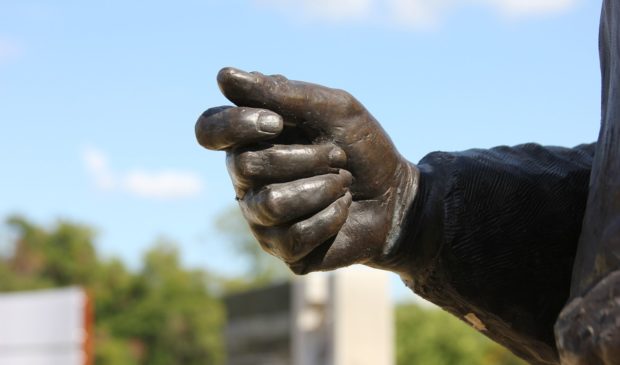Planning Commission initiates historic zoning for Emancipation Park site
Tuesday, April 11, 2017 by
Joseph Caterine A week before the release of the Mayor’s Task Force on Institutional Racism and Systemic Equities’ 70-page report, the Planning Commission took a small step during its March 28 meeting in fixing what local historian Fred McGhee called a “broken historic preservation process” by initiating historic zoning for 2724 E. 12th Street, one of the former locations of Emancipation Park.
The Travis County Emancipation League established Emancipation Park in Austin around 1900 as a space to celebrate the passing of the Emancipation Proclamation and the freedom of African-Americans from the bondage of slavery in the United States.
In 1938, the league was forced to move the park to its 12th Street location when the city imposed eminent domain on the site to construct the Rosewood Courts public housing project, which has has been the focus of a heated preservation fight in recent years. City Council initiated historic zoning for that project back in February 2016, thanks in large part to the efforts of District 1 Council Member Ora Houston, who had to push against the modernization plans of the Housing Authority.
At the March 28 meeting, Commissioner Nuria Zaragoza joked that the Planning Commission had never heard a case as many times as this one.
The Chestnut Neighborhood Planning Contact Team initially supported a 2011 rezoning, because the owner had promised them to make 40 percent of the units affordable and to create a designated area commemorating Emancipation Park, but no restrictive covenant was signed.
In December of last year, the Planning Commission considered a compatibility waiver application from the new owner of the property, Shravan Parsi, but this time around the project only planned on having 20 percent affordable units, and the designated area for Emancipation Park had been reduced to a plaque.
Commissioner Trinity White, who as a member of the neighborhood had been involved in the case back in 2011, openly regretted that a restrictive covenant had not been signed then, and when she asked agent Michele Lynch at that meeting to present the current restrictive covenant on the table, it became clear that the developer had signed the covenant with themselves, making it legally meaningless.
In February of this year, the Planning Commission heard the case again after it was postponed and voted to deny the waiver after impassioned testimony from McGhee about the project’s erasure of the site’s history.
Commissioner James Shieh, who made the motion to initiate historic zoning for a portion of the site, said at the March 28 meeting that he felt compelled to do something. “This way, for generations to come, it will always be remembered, and people will know that this marker is there.”
Seconding the motion, Commissioner Angela Pineyro De Hoyos, who also serves on the mayor’s institutional racism task force, said that historic zoning should be put in place as the “bare minimum.” The commission passed the motion unanimously.
McGhee told the Austin Monitor that he applauded the commission’s move as a “sincere effort” to do something. He encouraged other commissions and city officials to take a harder stance when it came to enforcing historic preservation, especially when it came to the city’s African-American history.
“Developers are going to have to understand that their hegemony concerning these questions should come to an end,” he said.
The item will go the Historic Landmark Commission before it returns to the Planning Commission for review.
Photo by Jennifer Rangubphai (Own work) [CC BY-SA 4.0], via Wikimedia Commons.
The Austin Monitor’s work is made possible by donations from the community. Though our reporting covers donors from time to time, we are careful to keep business and editorial efforts separate while maintaining transparency. A complete list of donors is available here, and our code of ethics is explained here.
You're a community leader
And we’re honored you look to us for serious, in-depth news. You know a strong community needs local and dedicated watchdog reporting. We’re here for you and that won’t change. Now will you take the powerful next step and support our nonprofit news organization?









